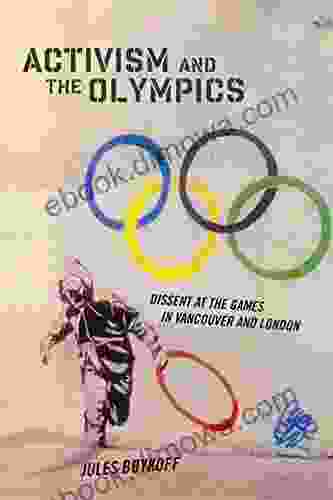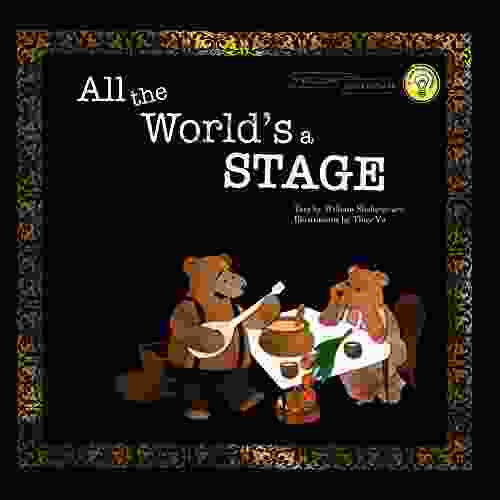The Olympics: A Stage for Activism

The Olympic Games are the world's largest sporting event, and they have long been a stage for political protest and activism. From the Black Power salute at the 1968 Mexico City Games to the protests against apartheid at the 1976 Montreal Games, athletes have used the Olympics to raise awareness of important issues and to challenge the status quo.
4.7 out of 5
| Language | : | English |
| File size | : | 311 KB |
| Text-to-Speech | : | Enabled |
| Screen Reader | : | Supported |
| Enhanced typesetting | : | Enabled |
| Print length | : | 194 pages |
In recent years, activism at the Olympics has become increasingly common. At the 2008 Beijing Games, several athletes spoke out against China's human rights record. At the 2012 London Games, athletes protested against homophobia in Russia. And at the 2016 Rio Games, athletes took a stand against racism and police brutality in the United States.
The Olympics provide a unique platform for activism because they are a global event that attracts a massive audience. When athletes use the Games to speak out on important issues, they can reach a much larger audience than they would if they were to protest elsewhere.
Of course, activism at the Olympics is not without its risks. Athletes who speak out against the status quo can face retaliation from their governments or from the International Olympic Committee (IOC). In some cases, athletes have even been banned from competing in the Olympics.
Despite the risks, athletes continue to use the Olympics as a platform for activism because they believe that they have a responsibility to speak out on important issues. They know that the Olympics are a powerful symbol of unity and hope, and they believe that they can use the Games to make a positive difference in the world.
A History of Activism at the Olympics
The history of activism at the Olympics dates back to the early days of the Games. In 1906, the Swedish runner Erik Lemming refused to salute the Russian flag at the Intercalated Games in Athens. Lemming's protest was a response to the Russian government's persecution of Finnish athletes.
In 1936, the African-American runner Jesse Owens won four gold medals at the Berlin Games. Owens' victory was a major blow to the Nazi regime, which was trying to use the Olympics to promote its racist ideology.
In 1968, the American runners Tommie Smith and John Carlos raised their fists in a Black Power salute at the Mexico City Games. Smith and Carlos' protest was a response to the racial injustice that was rampant in the United States at the time.
In 1976, the African nations of Kenya, Uganda, and Tanzania boycotted the Montreal Games in protest against apartheid in South Africa. The boycott was successful in raising awareness of the issue of apartheid and in putting pressure on the South African government to end its racist policies.
In recent years, activism at the Olympics has become increasingly common. At the 2008 Beijing Games, several athletes spoke out against China's human rights record. At the 2012 London Games, athletes protested against homophobia in Russia. And at the 2016 Rio Games, athletes took a stand against racism and police brutality in the United States.
The Impact of Activism at the Olympics
Activism at the Olympics has had a significant impact on the world. Athletes who have spoken out on important issues have helped to raise awareness of those issues and to challenge the status quo. In some cases, activism at the Olympics has even led to positive change.
For example, the Black Power salute at the 1968 Mexico City Games helped to raise awareness of the issue of racial injustice in the United States. The salute also inspired other athletes to speak out against racism, and it helped to build momentum for the civil rights movement.
The boycott of the 1976 Montreal Games by the African nations of Kenya, Uganda, and Tanzania helped to put pressure on the South African government to end its racist policies. The boycott was successful in raising awareness of the issue of apartheid, and it helped to lead to the end of apartheid in South Africa.
Activism at the Olympics continues to have a positive impact on the world. Athletes who speak out on important issues are helping to make the world a more just and equitable place.
The Olympics are a powerful symbol of unity and hope. They are also a platform for activism and social change. Athletes who have spoken out on important issues at the Olympics have helped to raise awareness of those issues and to challenge the status quo. In some cases, activism at the Olympics has even led to positive change.
The Olympics are a reminder that we all have a responsibility to speak out against injustice and to work for a better world. Let us hope that the athletes who compete in the Olympics continue to use the Games as a platform for activism and social change.
4.7 out of 5
| Language | : | English |
| File size | : | 311 KB |
| Text-to-Speech | : | Enabled |
| Screen Reader | : | Supported |
| Enhanced typesetting | : | Enabled |
| Print length | : | 194 pages |
Do you want to contribute by writing guest posts on this blog?
Please contact us and send us a resume of previous articles that you have written.
 Book
Book Novel
Novel Page
Page Chapter
Chapter Text
Text Story
Story Genre
Genre Reader
Reader Library
Library Paperback
Paperback E-book
E-book Magazine
Magazine Newspaper
Newspaper Paragraph
Paragraph Sentence
Sentence Bookmark
Bookmark Shelf
Shelf Glossary
Glossary Bibliography
Bibliography Foreword
Foreword Preface
Preface Synopsis
Synopsis Annotation
Annotation Footnote
Footnote Manuscript
Manuscript Scroll
Scroll Codex
Codex Tome
Tome Bestseller
Bestseller Classics
Classics Library card
Library card Narrative
Narrative Biography
Biography Autobiography
Autobiography Memoir
Memoir Reference
Reference Encyclopedia
Encyclopedia Soon Yau Cheong
Soon Yau Cheong Michael Waltrip
Michael Waltrip John R Dean
John R Dean Themistocles M Rassias
Themistocles M Rassias Julia Feliz Brueck
Julia Feliz Brueck Lucas Savino
Lucas Savino Kass Morgan
Kass Morgan Terry Dean
Terry Dean Vicky Wu
Vicky Wu Julian Barnes
Julian Barnes Matthew Zapruder
Matthew Zapruder Jonathan Kingdon
Jonathan Kingdon Lawrence Bee
Lawrence Bee John Vince
John Vince Tim Mccarver
Tim Mccarver Page Putnam Miller
Page Putnam Miller Ryan Graudin
Ryan Graudin Jules Archer
Jules Archer Richard Devanney
Richard Devanney Josh Abbs
Josh Abbs
Light bulbAdvertise smarter! Our strategic ad space ensures maximum exposure. Reserve your spot today!
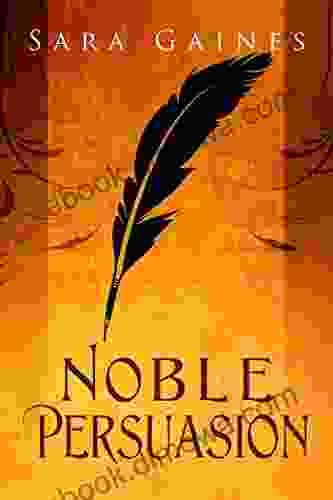
 DeShawn PowellNoble Persuasion: The Halvarian Ruin – An Epic Fantasy Adventure That Will...
DeShawn PowellNoble Persuasion: The Halvarian Ruin – An Epic Fantasy Adventure That Will...
 Kazuo IshiguroFour Young Men Cross the North Atlantic: A Journey of Adventure, Courage, and...
Kazuo IshiguroFour Young Men Cross the North Atlantic: A Journey of Adventure, Courage, and... Alex ReedFollow ·11.8k
Alex ReedFollow ·11.8k Dave SimmonsFollow ·4.8k
Dave SimmonsFollow ·4.8k Gil TurnerFollow ·8.3k
Gil TurnerFollow ·8.3k Arthur MasonFollow ·14.7k
Arthur MasonFollow ·14.7k Yasunari KawabataFollow ·10k
Yasunari KawabataFollow ·10k Howard PowellFollow ·18.6k
Howard PowellFollow ·18.6k Daniel KnightFollow ·18.7k
Daniel KnightFollow ·18.7k Al FosterFollow ·19.2k
Al FosterFollow ·19.2k
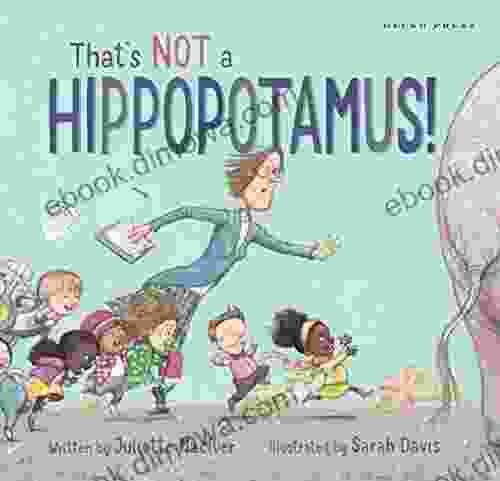
 José Martí
José MartíUnleash the Magic Within: "That's Not a Hippopotamus,...
Step into a Realm Where...

 Cristian Cox
Cristian CoxWhere Is Thumbkin? A Journey Through Beloved Children's...
In the realm of...
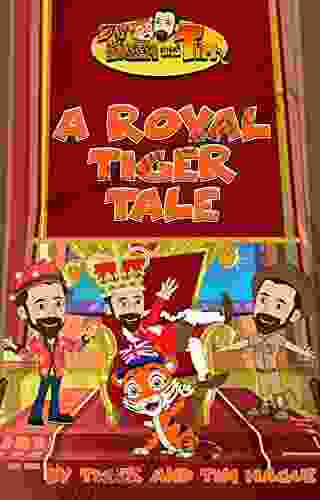
 Jason Reed
Jason ReedWitness the Unforgettable Journey of "Royal Tiger Tale":...
: Embark on an extraordinary literary...

 David Baldacci
David BaldacciRicky's Dream Trip to Ancient Greece: An Unforgettable...
Embark on an Epic Journey Get ready...

 Ira Cox
Ira CoxUnleash the Freckled Venom: Embark on an Enchanting...
Dive into the Extraordinary...
4.7 out of 5
| Language | : | English |
| File size | : | 311 KB |
| Text-to-Speech | : | Enabled |
| Screen Reader | : | Supported |
| Enhanced typesetting | : | Enabled |
| Print length | : | 194 pages |


